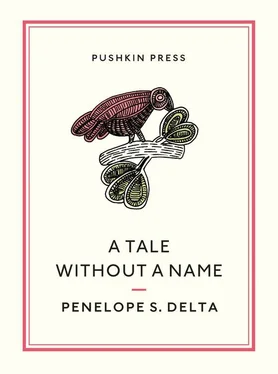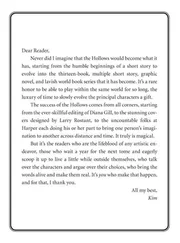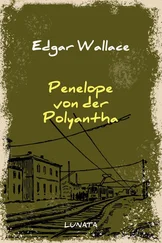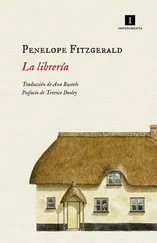He rose carefully, peered through the stones without being seen, and saw the same inhospitable man: he was now speaking from his window to a child laden with a sack; his voice was hushed and secretive.
“Did anyone see you?” asked the man lowering his voice to a whisper.
“No, of course not! What am I, a fool to get caught?” answered the child. “But come, unload my burden, the sack is heavy!”
“What’s in it?” asked the man, leaning out of the window to catch hold of it.
“A flask of wine, three apples, a shoe, two pies and a woolly hat.”
“You found these things all together in one place?”
“No. Bittersuffering was at home when I went there. I snatched the wine and the apples, which he kept on the windowsill so they might stay fresh and cool, and took to my heels. The rest comes from Badluck. He was away to town where he was to be a witness at Miserlix’s trial; so I took care of his house at my leisure.” And with that the child broke into a guffaw. “Yet you have not seen the real booty,” he went on, taking out of his pocket a silver watch. “I got this one last night, out of Miserlix’s pocket. Ain’t it a beauty?”
“Is that so? And where did you come across Miserlix?”
“Hah! I was there when the palace courtier with the chain thrust him down the mountain in order to take his haversack from him. So then down I scrambled myself as well, and, finding him unconscious, I groped about in his pockets and took his watch and two silver five-crown coins. Do I get no praise from you?”
“Come in,” said the man delightedly. “Give me the silver coins, and you shall receive the very best praise! You have earned it!”
The window was then pulled shut and the child disappeared to the back of the house.
The Prince woke up his sister. His face was dark and clouded.
“Come,” he said. “We must leave this place.”
Little Irene got up and followed him.
“Who is chasing us away this time?” she asked.
“Little Irene,” said the Prince, his eyebrows furrowing. “Do you know why the man did not want us on his doorstep just now?”
“No!”
“Because he is a fence, a receiver of stolen goods, and he was afraid we might see the boy who was bringing him the things he had stolen. And do you know what the dinner was that Cunningson brought to the palace last night? He stole it himself from some poor soul by the name of Miserlix, whom he even thrust down the mountainside so he might not talk. This is what goes on in our kingdom!”
“Heaven help us!” muttered Little Irene with tears in her eyes.
They walked through a small town with misshapen and squalid roads, the houses half in ruin.
Above a doorway they noticed some black letters. But neither knew how to read.
“Let us knock here and ask what this place is,” said the Prince.
They knocked, and a pale, scrawny man opened the door to them, holding a book in his hand.
“What do you want, my children?” he said kindly.
“We wish to learn what this house is,” said the Prince apologetically.
“This house? But it is written all up there, my children!” the man said, baffled, pointing to the letters above his door.
“We do not know how to read,” said Little Irene with embarrassment.
“Aaah?…” said the man. “And yet it is the same sorry state everywhere in the realm; no one knows how to read any more.”
And he explained to them that outside it was written “School of the State”.
“A school!” exclaimed the Prince joyfully. “I have never seen a school, and I have always wanted to know what one is like! But… where are the pupils?”
The man scratched his ear, hesitated, and finally said:
“They are… they are away at present.”
“And at what time will they be back for their lessons? I should like to see them,” said the Prince.
“But… But they do not have lessons…” answered the man hesitantly.
And seeing the puzzlement in the boy’s eyes:
“Well, so be it… Yes, that’s right, I do not give them lessons!” he burst out bitterly. “As if it were easy to do the proper thing in this place! The State appointed me as teacher, and entrusted the children to me so I might teach them their letters. Only the State forgets to pay me, forgets that I too have needs, that I must eat and clothe myself! The children come but I do not give them lessons. I take them to my kitchen garden to work the soil, so I might have my bread, and I send them to the woods to pick strawberries, or arbutus berries, or other seasonal fruit. I am a man too, you know! I too must live!”
All this the schoolmaster said with great grief, his eyes brimming with tears.
The Prince gazed at him, lost in thought. His face was grave.
“And who forces you to stay on as schoolmaster?” he asked finally.
“What else could I do? I would die out in the cold. Here at least I have a house!”
“So then you do accept the house,” said the Prince, his eyes flaring, “even though you do not fulfil your duty!”
The schoolmaster smiled.
“As if that were easy now!” he said quietly. “You are but a child! You do not know what life is like, and you think it is simple and easy to do your duty, to work unrewarded for the benefit of others! Only, in order to do your duty, my boy, you need sometimes to make a heroic sacrifice of yourself. And not everyone is a hero in this world.”
The Prince went out, without giving an answer.
Many thoughts, and ever more thoughts, stumbled and tripped in his mind. It seemed to him that his eyes were looking at new worlds.
There was a long moment of silence, while he held his sister’s hand.
“Self-sacrifice!” he murmured. “You heard that, Little Irene? It takes, he said, a heroic act of self-sacrifice, and not everyone is a hero… Do you recall the words of Knowledge, that by labouring for the common good, we benefit ourselves in the end? I am afraid that in our country no one ever learnt that. Each of us seeks to profit for himself alone, or, at the very least, to be left in peace…”
“Why do you say this, brother?”
“Because we too are no different. Neither you nor I nor anyone else from the palace ever did anything for the common good… Yes, Little Irene, this is how the State was brought to its ruin…”
Brother and sister continued their way without speaking, each lost in thought.
They reached another hamlet, as impoverished and deserted as the first.
In a small garden, unkempt, overgrown, untilled, there sat, next to some half-parched furrow weeds, a poorly dressed little old man; he was busy wool-gathering and playing with a rosary to pass the time.
“A very good day to you,” he said as brother and sister went past.
“Good afternoon to you, grandfather,” replied the Prince. “Would you let us sit a little in your garden, to rest?”
“You most certainly may, my children. Why don’t you come in indeed, share a word or two with old Penniless here, so I may forget my troubles?” answered the old man.
They entered the garden, and sat on the bench next to him.
“It distresses me deeply that I have nothing left to offer you,” said the old man. “Only they stole from me the one thing that I had, wretch that I am, some few fresh raspberries, which were my pride and joy! Where are you headed, my young lord and lady?”
“To the capital,” replied Little Irene.
“Is that so? You travel far. And what will you do in the capital?”
“We go to find work,” said the Prince.
The old man barely suppressed a smile:
“You will only be wasting your time, my children. There is no work to be found in the capital any more.”
“Why?”
“Because no one is so foolish as to work so that he may earn the bread that his neighbour will eat in his stead.”
Читать дальше












